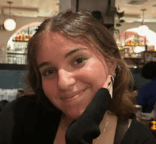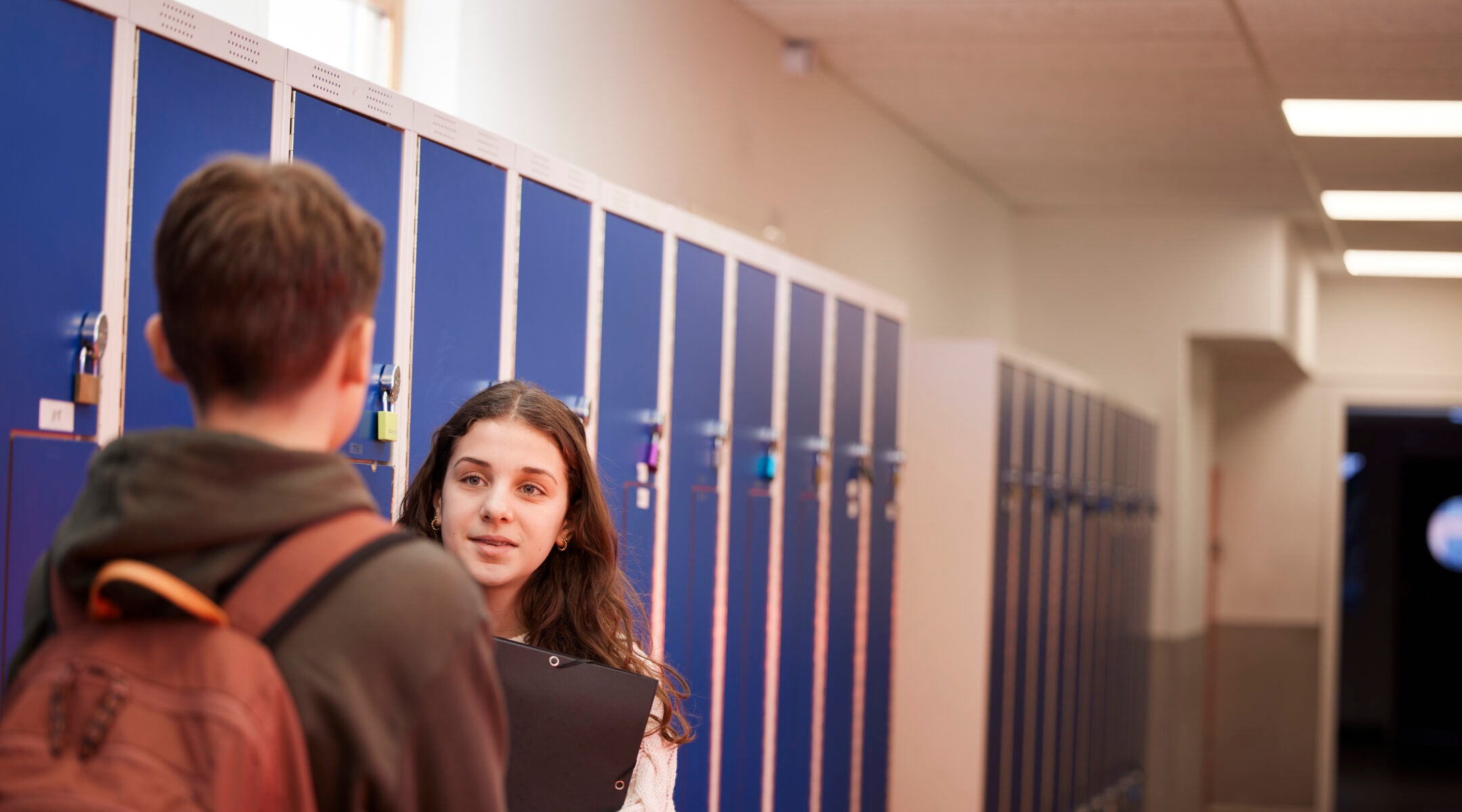This article was produced as part of the New York Jewish Week’s Teen Journalism Fellowship, a program that works with Jewish teens around New York City to report on issues that affect their lives.
As a teen reporter I work hard to amplify the voices of young people on issues that affect them. That’s why I was excited about my assignment from the New York Jewish Week to gather teens’ reactions to the upcoming New York City mayoral election. While many of these teens aren’t old enough to vote, I hoped to present a range of opinions from young people who care about their city and its future.
But when I started to report on the issue, I kept hitting the same wall: None of the teens I tried to interview would go on the record with their names or their political beliefs. All eight said they didn’t want that type of exposure in such a politically divisive time.
The teens I met aren’t the only ones who feel this way, and it isn’t just the mayoral election that’s keeping young adults quiet. According to Education Week, “young people are reluctant to discuss politics, especially without a space to safely navigate those discussions in such a polarized environment.” The article found that teens often worry that if they speak up in school, their voices will be dismissed, criticized or misunderstood. A lack of confidence could play a role, too: A 2023 study by CIRCLE, Tufts University’s research organization focused on youth civic engagement, found that only 40% of students feel “well-qualified” to participate in political conversations.
Nonetheless, in private conversations, the New York City teens I talked with shared fascinating insights about the mayoral race. The discussions broadly fell into two camps: Teens felt conflicted over the morality and beliefs of the candidates, and they also feared that if they said the wrong thing, their opinions would follow them for the rest of their lives.
Zohran Mamdani, the frontrunner, is a progressive and a staunch critic of Israel who won the Democratic nomination. His closest challenger, former New York Gov. Andrew Cuomo, is seeking a political comeback after resigning as governor in 2021 amid a barrage of sexual harassment allegations. Trailing the pack is Republican Curtis Sliwa, the red beret-wearing founder and CEO of the Guardian Angels.
To Jewish teens, none of these candidates seem suitable to run their beloved city — something my sources were eager to express, albeit anonymously.
“On the one hand, it feels morally wrong to consider electing Andrew Cuomo, given the numerous allegation of sexual harassment. As a woman, I believe elected officials should embody the values of respect and integrity,” one Jewish teen living on the Upper West Side told me. “On the other hand, while Zohran Mamdani’s policies often sound compelling, in theory, I consistently find myself questioning what a sharply critical view of Israel might mean for a city with the largest Jewish population outside of Israel.”
Another Upper West Side teen, a senior at a private high school, echoed a similar sentiment: “This election has been so frustrating because it feels like I have to give up one set of values to protect another.”
The teens I spoke to had strong beliefs. Why had they declined to attach their names to their statements?
Well, according to a junior at a Manhattan public high school, “although I am not yet old enough to vote, I’ve found this mayoral race both confusing and frustrating. I don’t want my name attached to either one of these candidates.”
“I do not want my name to be linked to a political figure,” explained one Upper East Side teen, “because it can follow me into the future and change how others automatically view me when they meet me for the first time.”
This last quote, in particular, touched a nerve with me, as it highlights just how aware teens are of growing up in a society that increasingly lives online. Teens applying for colleges and thinking about their future career path start thinking at a young age. The last thing we want is for a future employer to find — and disagree with — something we said about a politician when we were 16.
As a teen reporter, my job is to give teens an opportunity to be seen and heard. My editor, who has worked with teen journalists for over 30 years, told me that she’s seen more and more young sources ask for anonymity over the past five years. As our lives become inextricably tied to the internet, it’s easy to see why: Doxxing — the malicious release of private information — has become a “mainstream public safety concern,” according to Safe Home, which conducts yearly research on doxxing. According to their report, 57% of Americans say they avoid sharing political views online out of fear of being targeted.
Doxxing over perspectives related to the Israeli-Palestinian conflict has been common in recent years, with both pro-Israel and pro-Palestinian voices experiencing the practice.
So as a 17-year-old who is constantly on social media and always with my friends, I understand why my peers are worried about sharing too much. But this also means my role as a reporter who focuses on teen issues has become significantly more difficult. I worry that as the city becomes more polarized by politics, teens and young adults will feel less and less comfortable sharing their views and, as a result, news articles can’t reflect the community fully and policies can’t be responsive to young people’s needs. When that happens, we all lose.
Compounding the reluctance of young people to speak publicly about politics is the hesitancy of politicians and media to seek their opinions. Meira Levinson, a professor of education and society at Harvard University, writes about the “civic empowerment gap.” She describes how young people, especially those still in school, are often encouraged to care about politics but are rarely given the opportunity to express their views in a meaningful way. Candidates almost never make the effort to integrate teen concerns into their campaign.
Our communal politics need to create a safe space for young people to share their opinions. And candidates should solicit teens’ views if they want to make New York City a safe and inclusive city for all.
The New York Jewish Week brings you the stories behind the headlines, keeping you connected to Jewish life in New York. Help sustain the reporting you trust by donating today.





